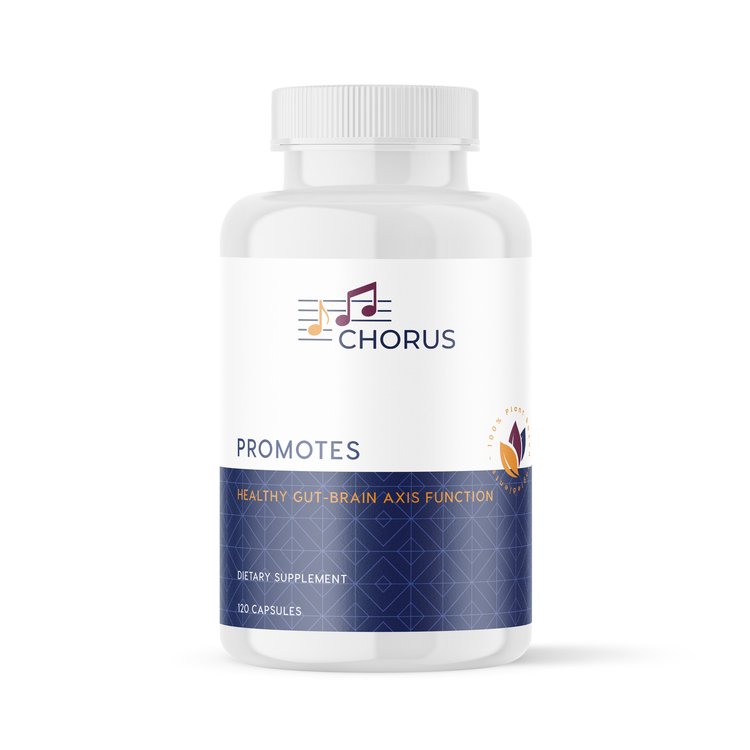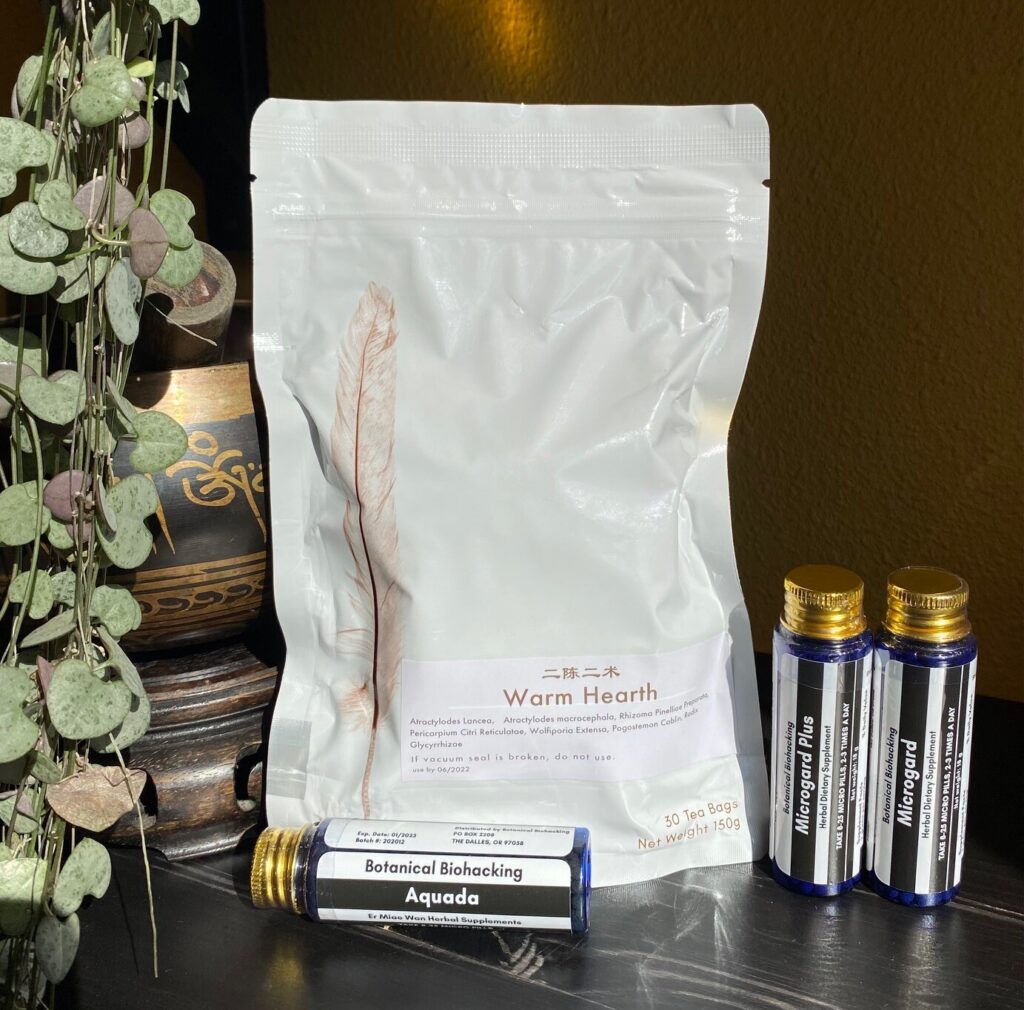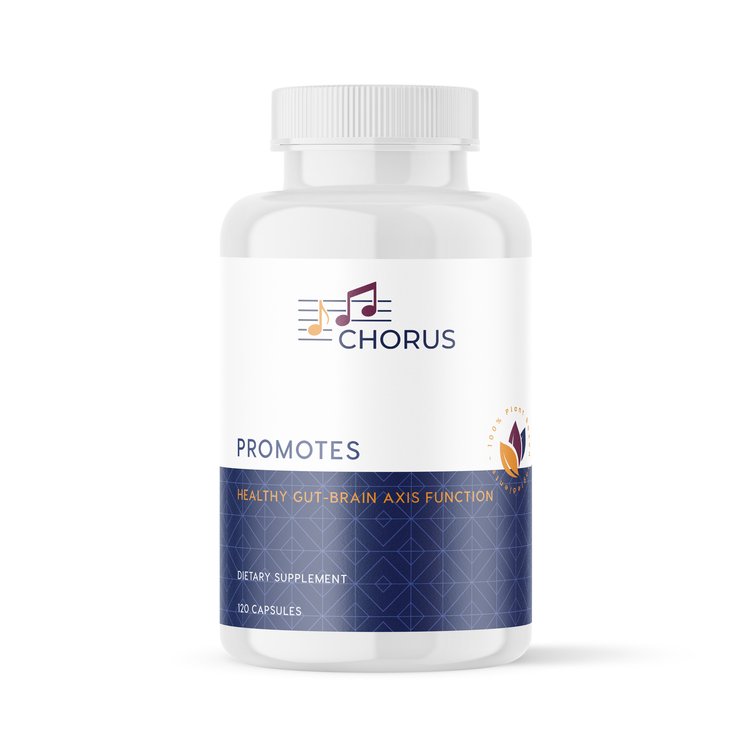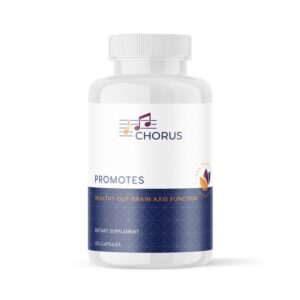Exploring the intricacies of Non-Celiac Gluten Sensitivity (NCGS) can be a daunting journey for many. However, as we delve into the role of the microbiome in food sensitivities, the potential benefits of Shen Qu become apparent. In this context, Chorus emerges as a beacon of hope, bridging the gap between ancient wisdom and modern science and offering relief to those grappling with gluten-related challenges.
Quick Links to the Sections Below
@crawford_wellness #greenscreen #glutensensitivity *might* be curable. We need more data but with #traditionalchinesemedicine for #ibs many patients are finding they can once again eat wheat & gluten products without struggling @Chorus ♬ Good Vibes - Rerewrpd
Non-Celiac Gluten Sensitivity
The distinction between celiac disease and Non-Celiac Gluten Sensitivity (NCGS) might seem blurry to many. While celiac disease has its own clearly defined boundaries, diagnosable by specific tests and marked by an autoimmune reaction to gluten, NCGS remains more elusive.
Individuals with NCGS don’t have the telltale autoimmune markers, yet they exhibit a range of symptoms after consuming gluten-containing foods. These symptoms, ranging from bloating and headaches to joint pain, often overlap with other conditions, making NCGS a challenging puzzle for both patients and practitioners. For those like me, navigating these waters has been a journey of trials, tribulations, and revelations.
My Relationship with Gluten
Years ago, I noticed a pattern: Whenever I indulged in gluten-rich foods, my gut would protest. It wasn’t just the bloating or the indigestion; I began to experience aching joints and heightened allergies. I ventured into the realm of gluten-free living, and the results were nothing short of transformative. My joint pains diminished, and I could finally enjoy spring without sneezing.
One evening, after years without gluten, I gave in to my craving and ate some baklava—a dessert I usually avoided. After eating, a friend recommended I try something new: I took some Chorus. Surprisingly, I felt fine, with no usual tummy troubles and joint pain. What was in that Chorus? What shielded me from the usual discomfort? This incident was the catalyst that drove me to delve deeper into the science and potential benefits behind Chorus.
The Science
Diving deeper into the scientific realm, I’d like to draw your attention to an intriguing PubMed study
Summary
At the heart of this study is the in vitro exploration of the microbiome. For those unfamiliar with the term ‘in vitro,’ it refers to experiments conducted outside a living organism, often in petri dishes or test tubes. This type of research allows scientists to have a controlled environment, eliminating variables that might exist in live subjects.
The study primarily investigated the microbiome’s influence in determining our body’s response to certain foods, particularly focusing on food sensitivities. The microbiome, a complex community of trillions of bacteria residing in our digestive tract, plays a pivotal role in our overall health. From aiding in digestion to regulating immune responses, these microbial tenants influence various bodily functions.
This research aimed to discern how specific strains of bacteria might alleviate or exacerbate food sensitivities, offering insights into potential therapeutic strategies for conditions like Non-Celiac Gluten Sensitivity.
In essence, by understanding how the microbiome interacts with our food, and subsequently with our immune system, we can inch closer to personalized medicine and dietary recommendations tailored to individual gut profiles.
Overview
This study titled “Lactobacillus paracasei AH2 Alleviates Wheat Allergy by Modulating Gut Microbiota and Elevating Short-Chain Fatty Acid Levels in Mice” is essentially examining the potential benefits of Lactobacillus paracasei AH2, a strain of bacteria isolated from traditionally homemade sourdough in Anhui province, China, in alleviating wheat allergies. Here’s a breakdown of the study’s contents:
Background
– Many people globally have gluten-induced food allergies.
– A previous study indicated that Lactobacillus paracasei AH2 has potential in reducing the immune response to wheat protein in in vitro settings.
– The role of L. paracasei AH2 in a live organism (in vivo) and the underlying mechanisms have not been determined.
Results
– L. paracasei AH2 showed positive effects on gluten-induced allergic reactions:
– Suppressed symptoms of anaphylaxis.
– Reduced levels of gluten-specific immunoglobulin E, histamine, and interleukin-4.
– Attenuated splenomegaly (enlarged spleen).
– Induced differentiation of Th1 and Treg cells, promoting an immune balance leaning towards Th1.
– Short-chain fatty acid (SCFA) levels increased after L. paracasei AH2 supplementation, which contributed to allergy relief and decreased the pH of the colonic contents.
– Gut microbiota diversity was influenced by L. paracasei AH2, with increased beneficial bacteria and decreased unfavorable ones.
– L. paracasei AH2 also protected the intestinal barrier by enhancing the tight junctions and improving antioxidant activities in the serum.
Conclusion
– The study’s findings suggest that Lactobacillus paracasei AH2 might serve as a potential probiotic for relieving wheat allergies. This is achieved by modifying the gut microbiota and boosting SCFA levels.
This study’s implications are significant as it opens up the possibility of using probiotics to address wheat allergies, potentially providing relief to a considerable number of people worldwide
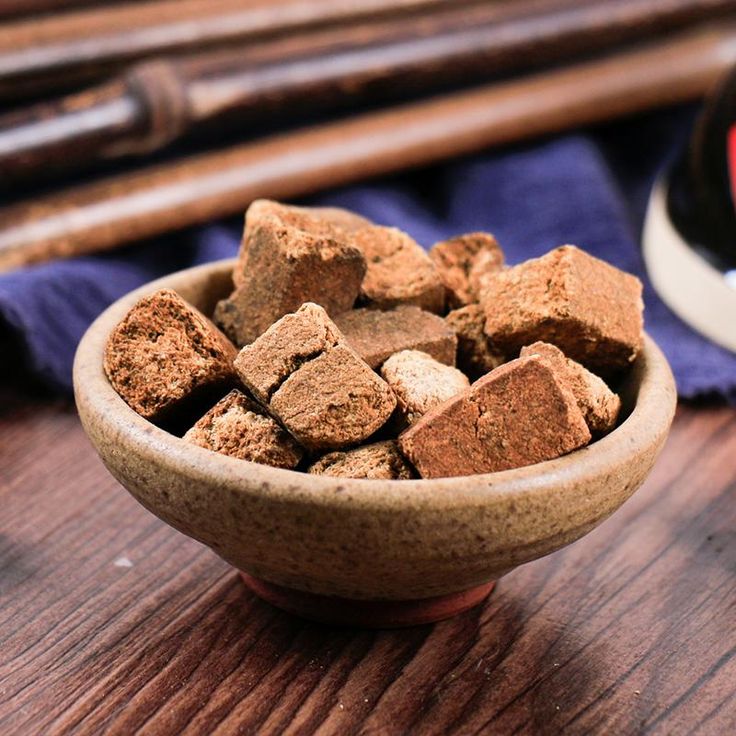
Chorus: Ingredient 'Massa Fermentata'
One of Chorus’s key ingredients is Massa Medicata Fermentata (MMF) or Shen Qu.
Shen Qu is a traditional Chinese medicine known as Medicated Leaven or Massa Medicata Fermentata. It comprises a mixture of herbs, wheat flour, and wheat bran.
Historically, MMF was prepared by fermenting a mixture of wheat and herbs. The resultant fermented mass was then dried and used for medicinal purposes. The primary agents responsible for its fermentation include several strains of yeast and bacteria. Over the years, its preparation might have seen slight variations, but the core principle remains rooted in the age-old fermentative traditions.
Shen Qu, is traditionally used in Chinese medicine for a variety of purposes, primarily related to digestion and symptoms that sound a lot like Non-Celiac Gluten Sensitivity.
Harmonizing the Stomach
Shen Qu is believed to help balance the stomach’s function, preventing or alleviating indigestion.
Promoting Digestion
One of its primary uses is to aid in the digestion of starchy foods, making it a common ingredient in herbal formulations designed to deal with indigestion following the consumption of large amounts of grains or other carbohydrate-rich foods.
Alleviating Food Stagnation
“Food stagnation” in Traditional Chinese Medicine (TCM) refers to the condition where food doesn’t move smoothly through the digestive system. Symptoms might include bloating, fullness, or pain in the abdominal region. Shen Qu is used to treat this condition by promoting the smooth flow of food and alleviating these symptoms..
Strengthening the Spleen
In TCM, the spleen is closely linked to digestive processes, and Shen Qu is believed to aid in strengthening spleen function, thereby supporting overall digestion.
Clearing Dampness
In TCM terminology, “dampness” is a condition that can manifest in various ways, including feelings of heaviness, sluggishness, and certain digestive issues. Shen Qu is used to help clear dampness from the body.
Modern Research
In the contemporary medical landscape, Shen Qu has caught the attention of researchers, particularly for its potential in digestive health. Preliminary studies suggest its promising role in modulating the gut microbiome, fostering a healthy balance of beneficial gut bacteria. As modern science continues to uncover Shen Qu’s mysteries, it reinforces the wisdom embedded in age-old Chinese medicinal practices.
Words of Hope
Discovering the potential of Chorus has been a game-changer for many in the NCGS community. While it’s vital to understand the differences between celiac disease and NCGS, Chorus offers a beacon of hope for those seeking relief. Imagine savoring that slice of bread or your favorite gluten-containing treat without the aftermath! As we bridge the gap between age-old traditions and modern scientific research, there’s never been a better time to explore the transformative benefits of Chorus.
Why wait to reclaim your health and joy in food? Experience the difference Chorus can make.
Here’s to the hope that science, tradition, and personal journeys can coalesce to relieve many. I urge you, dear readers, to share your stories, connect with others, and, most importantly, never lose hope.
About the Author
Brehan Crawford, based in McMinnville, Oregon, is a distinguished clinician specializing in the treatment of chronic conditions, particularly Lyme Disease and its coinfections. After earning his Master’s degree in Acupuncture and Oriental Medicine from the Oregon College of Oriental Medicine in 2009, he deepened his expertise with a 5-year residency under the mentorship of the renowned Dr. Heiner Fruehauf at the Hai Shan Clinic. A Diplomate of Oriental Medicine from the NCCAOM, Brehan has pioneered innovative methods using Traditional Chinese Medicine for chronic infections. Known for mentoring other professionals, he regularly imparts knowledge on advanced Chinese herbal medicine applications. Beyond his clinical pursuits, Brehan enjoys singing, cooking, and hiking.

